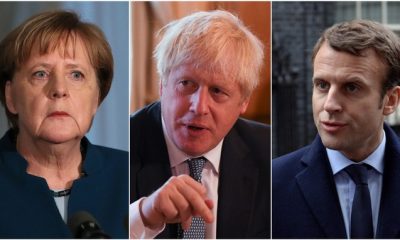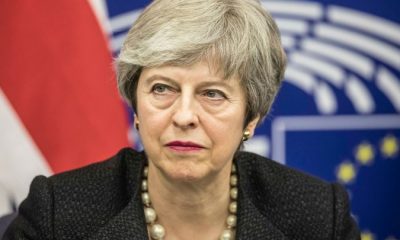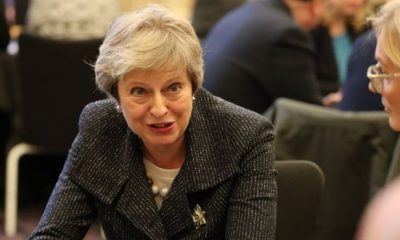World News
The End Of An Era: Angela Merkel Passes The Baton As The Head Of Her Party
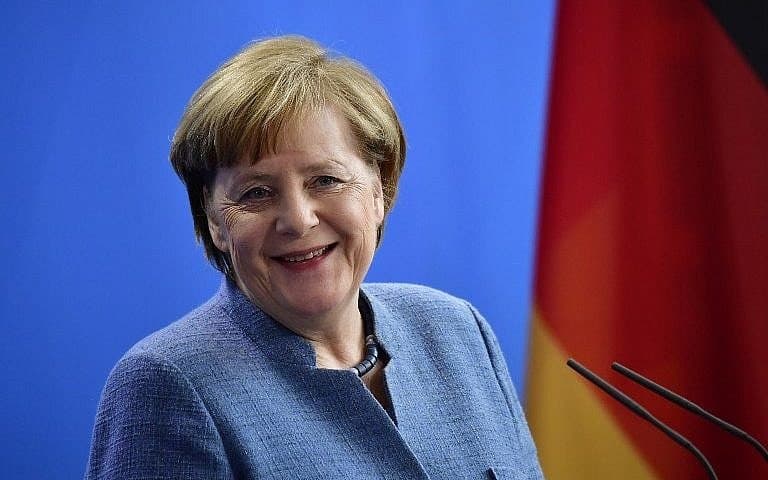
After 18 years of rule, Angela Merkel gives the reins of her conservative party Friday in a vote with historic accents that must also determine the course that will take Germany in the future.
The 1,001 delegates of the Christian Democratic Union (CDU), a third of whom are women, are due to elect a new president in the afternoon at a congress held in Hamburg on Saturday.
Three contenders are running for the job, which is also a jump-start for the German Chancellery.
Health Minister Jens Spahn is judged out of the running, the vote should boil down to a duel between a close friend of the Chancellor, Annegret Kramp-Karrenbauer (56) who roughly endorses the line centrist mentor, and a rival, Friedrich Merz, 63, a supporter of a sharp right turn.
This conservative of the old school wants to recover the disappointed Merkel era parties to vote for the far right, especially after the opening of Germany’s doors to more than one million Syrian or Iraqi refugees in 2015 and 2016.
The polls predict a very tight vote, as the delegates seem divided on the path to be chosen after Merkel.
– “Highs and lows” –
“I am grateful to have been president for 18 years,” Angela Merkel said Thursday at the opening of the congress. “It’s a very, very long time and of course the CDU has had its ups and downs,” she said.
Formerly affectionately nicknamed “Mutti” (Mom) by the public opinion, she was forced at the end of October to give up representing herself at the head of the party after two very disappointing regional elections.
At the age of 64, the leader of Europe’s leading economy for thirteen years still wants to go through her mandate as Chancellor until 2021.
“I look forward to continuing to work as Chancellor,” she said Thursday. Will it succeed? The choice of his successor will give an element of answer.
Each of the candidates promised to respect his wish. But a harmonious long-term cohabitation with Friedrich Merz, pushed a decade ago out of the CDU by Angela Merkel, seems unlikely.
Many predict his departure from the chancery next year after the European elections in May if the traditional parties are sanctioned again or at the latest in the autumn after elections in three Länder in the east of the country, all bastions of the extreme right.
Unless his partner in the governing coalition, the Social Democratic Party itself in crisis, accelerates the end of the chancellor by leaving the government itself.
Friedrich Merz received invaluable support from the head of the Chamber of Deputies Wolfgang Schäuble, for whom his election “would be the best for Germany”.
– How long will Merkel hold? –
The CDU needs renewal more than ever. Attacked on the right by the Alternative for Germany (AfD, far right) and gnawed at the center by the Greens, the formation no longer harvest with his Bavarian allies CSU that 26 to 28% of voting intentions in the polls.
In the legislative elections of September 2017, she was out weakened, but with another 33% of votes.
All suitors are looking for their way to stand out from the legacy of the Chancellor.
“I have my own profile and my own biography,” hammered on Wednesday the Catholic AKK, referring in particular to its fierce opposition to marriage for all.
In terms of migration policy, she pleaded for the expulsion of Syrians convicted of criminal acts, a step that even the very conservative Bavarian Minister of the Interior Horst Seehofer has ruled out.
Friedrich Merz, went as far as to question the right of asylum as it is written in the constitution. After the generous reception period of migrants in 2015 and 2016, one thing is certain, a chapter will close with the departure of Ms Merkel from the head of his party.

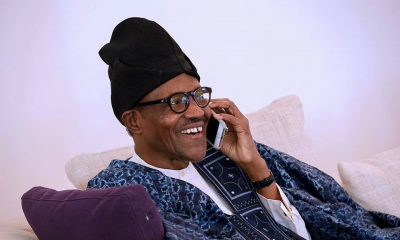

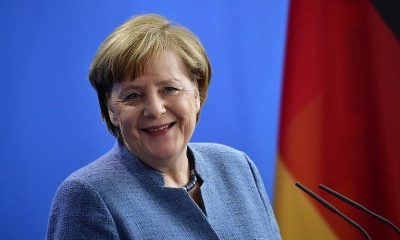

![Ex-British PM, Boris Johnson Visits Nigeria, Backs Fight Against Terrorism, Banditry [Photos]](https://www.naijanews.com/wp-content/uploads/2019/09/Boris-Johnson-adressing-the-nation-400x240.jpg)
![Ex-British PM, Boris Johnson Visits Nigeria, Backs Fight Against Terrorism, Banditry [Photos]](https://www.naijanews.com/wp-content/uploads/2019/09/Boris-Johnson-adressing-the-nation-80x80.jpg)
